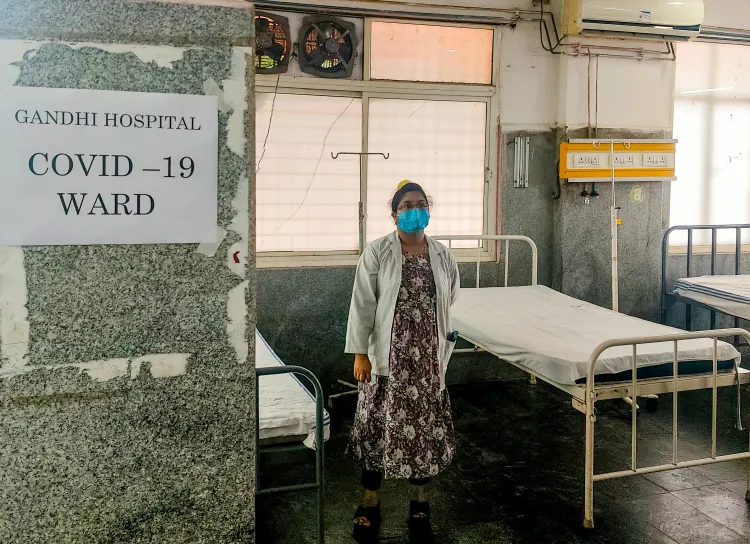Is the Current Covid-19 Infection Wave a Cause for Concern?

Synopsis
Key Takeaways
- No significant burden on hospitals expected from current Covid-19 wave.
- Natural immunity in the population is high due to past infections.
- New variants NB.1.8.1 and LF.7 are contributing to case rise.
- Vulnerable groups should practice enhanced safety measures.
- Early detection through strengthened surveillance is essential.
New Delhi, June 2 (NationPress) With approximately 4,000 active Covid-19 cases in the nation, health professionals have reassured the public that there is no reason for alarm, as this ongoing wave of infections is not expected to impose a significant strain on healthcare facilities.
As per the most recent report from the Ministry of Health, there are currently 3,961 active Covid cases. Since January 1, 2025, the death toll across various states has reached 32. In a positive development, 2,188 individuals were discharged or relocated within the last 24 hours, showcasing an uptick in recovery rates.
"The likelihood of this current infection wave leading to an increased burden on hospitals is quite low. Therefore, there is no cause for concern. However, enhancing the sentinel surveillance system is crucial for early detection of any outbreak," stated Dr. Harshal R. Salve, Additional Professor at the Centre for Community Medicine at AIIMS, New Delhi, during an interview with IANS.
The states with the highest reported cases include Kerala (1,435), Maharashtra (506), Delhi (483), Gujarat (338), and West Bengal (331).
This recent surge is attributed to two new variants of the coronavirus, NB.1.8.1 and LF.7, which are mutations of the Omicron variant JN.1. These variants have been identified in India, according to data from the Indian SARS-CoV-2 Genomics Consortium (INSACOG), established under the Ministry of Health.
"While there has been a rise in Covid cases, there is absolutely no reason for panic. It is primarily due to the re-emergence of the JN.1 variant," commented Dr. S.K. Chaudhary, Chief Superintendent of Motilal Nehru Joint Hospital in Prayagraj, Uttar Pradesh, during his discussion with IANS.
Dr. Salve further noted that severe infections from these variants are improbable, as a large segment of the population has developed natural immunity.
"The symptoms are comparable to previous Covid infections. Since the majority of the population has been previously infected, they have developed natural immunity, which shields them from severe manifestations of the illness," he explained.
Nevertheless, "this sub-variant exhibits high transmissibility. Individuals with comorbidities and the elderly should wear N95 masks to safeguard against transmission. General practices such as cough hygiene and handwashing must be maintained," added the expert.










